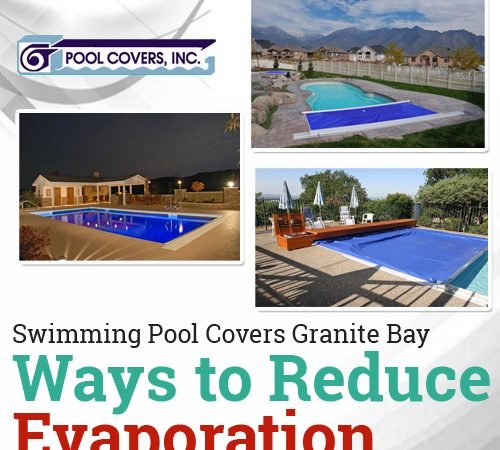
While evaporation in swimming pools seems to be negligible, it is something that every pool owner should be concerned about having happen in their pool. Have you considered installing swimming pool covers in Granite Bay to reduce pool water evaporation?
Evaporation occurs when you leave your pool uncovered, exposing it to air and wind to the water’s surface. It applies to every pool – even indoor and shaded pools. However, outdoor and unshaded pools are the most susceptible to evaporation due to the most significant culprits – heat and sunlight.
Usually, swimming pools lose ¼ to ½ inch of water every day due to evaporation – so imagine how much water your pool will lose every week, every month, and every year when you leave it uncovered. It will lose about 25,000 to 50,000 gallons of water a year due to evaporation for a normal-sized pool. Losing water means you have to refill your pool every seven to ten days, which can also mean mounting water bills.
Fortunately, evaporation is preventable. Here are some of the ways to reduce evaporation in your swimming pool:
1) Cover your pool – it is considered the most effective way to cut down evaporation. Research shows that covering a pool can slash evaporation by a whopping 95%! This reduction in water loss is enough reason to purchase a pool cover, especially if you want to conserve water during the hotter months.
2) Wind is one of the main factors that contribute to water evaporation. You can somewhat reduce water evaporation in your pool by installing wind barriers (also called wind blocks or windbreaks). White this does not eliminate evaporation as the pool surface area is still exposed, they will help. You can choose strong and solid fencing, large rocks, or even shrubbery around the pool. Or you can install glass enclosures over the pool. Other benefits of wind barriers include added protection, privacy, and enhancement of pool landscape.
3) Fountains, waterfalls, laminar fountains, and sprayers, as well as pool slides with water flowing down the runways, are some of the standard pool enhancement features. While they add the “wow” factor to your swimming pool, they can also contribute to water evaporation due to the increase in the amount of water surface exposed to wind and sunlight. Consider turning those features off and reserve them for use during pool parties with guests, family get-togethers, and other special occasions.
4) Lower your water temperature. As we know, warmer water has faster-moving molecules that turn into vapor and float away. When the temperature drops, the warm water evaporates even a lot faster. Evaporation accelerates when the water temperature is higher than the air’s temperature, where the water molecules turn into a mist that evaporates more quickly. Colder water, on the other hand, is slower to evaporate. If you are using a thermostat or heat pump in your pool, consider turning it off to lower your swimming pool’s temperature and conserve more water.
In addition to preventing evaporation, a pool cover offers additional benefits. It retains heat inside the pool by trapping it.
A pool cover can also keep the water clean by blocking it from fallen leaves, twigs, branches, dirt, soot, and other debris. Also, a pool cover can help prevent algae growth in your pool since it blocks sunlight, which algae need to grow.
Depending on the pool cover type and material, it can act as a safety barrier by preventing drowning and other pool-related accidents. Buy a safety pool cover only from a reliable manufacturer to enjoy all the benefits – more water in the pool, cleaner and warmer water, energy savings, and a safer pool environment.
For most residential pool owners, the single best way to prevent pool water evaporation is to slow down the process so that refilling the pool will be less needed (and less frequent) as possible. From reducing heat in the pool to using swimming pool covers in Granite Bay, these are all great ideas to slow down evaporation and save more water in your swimming pool.









